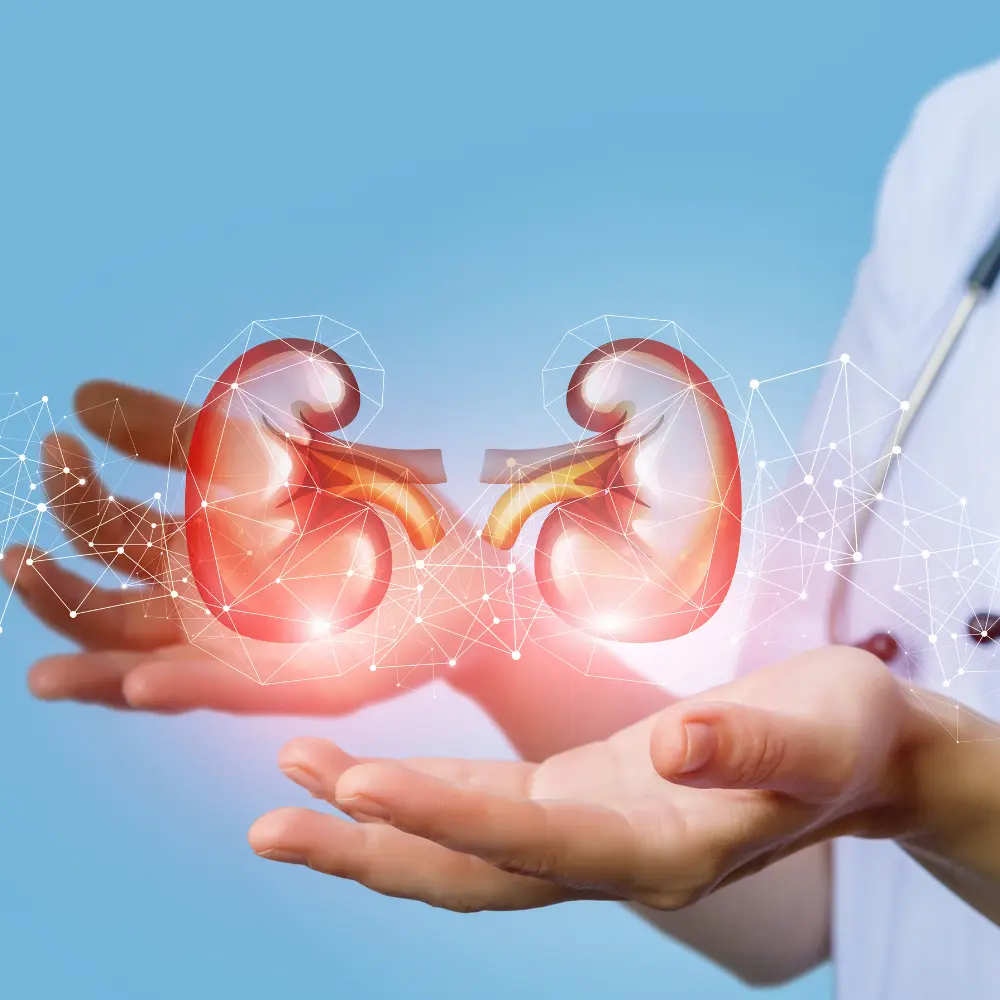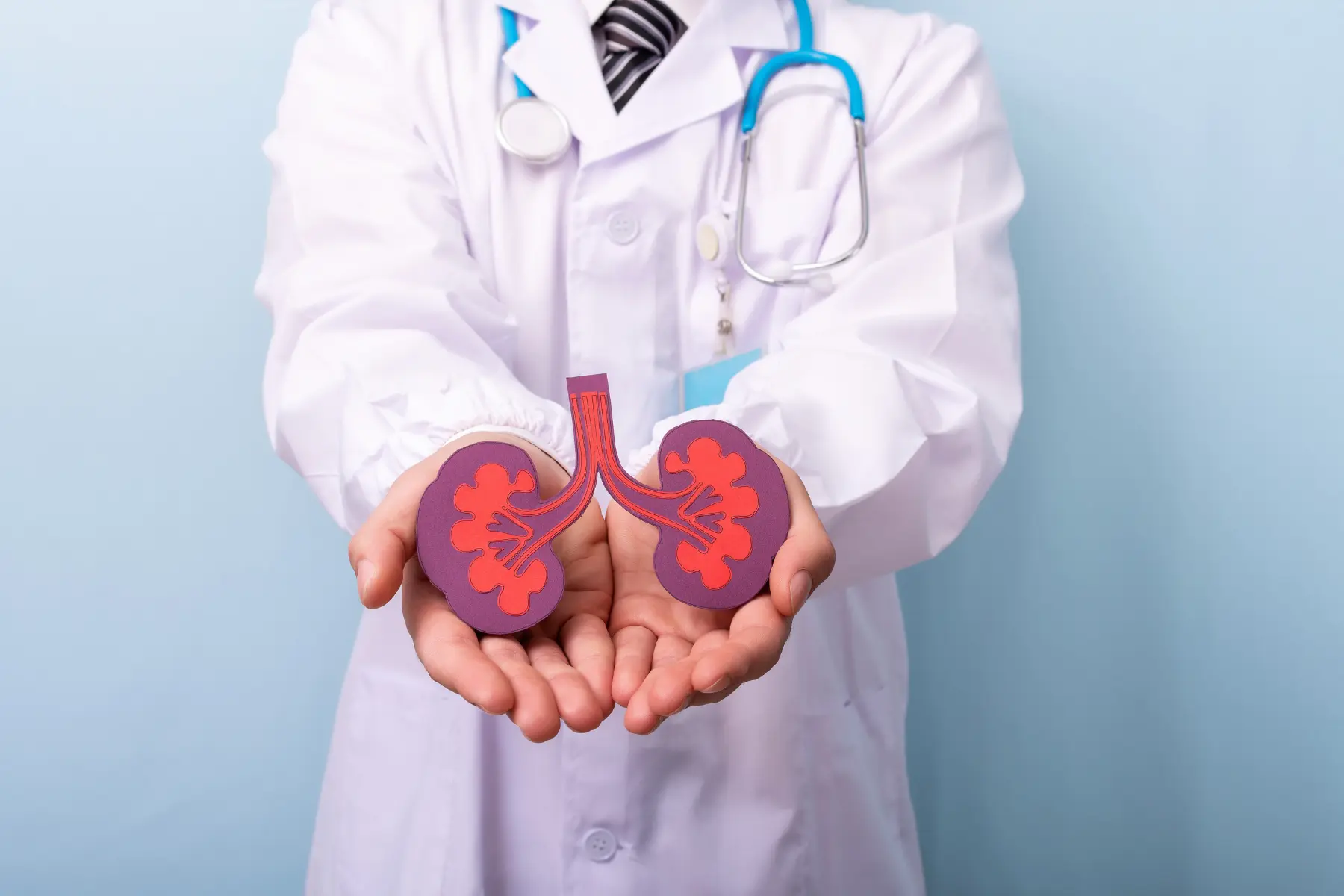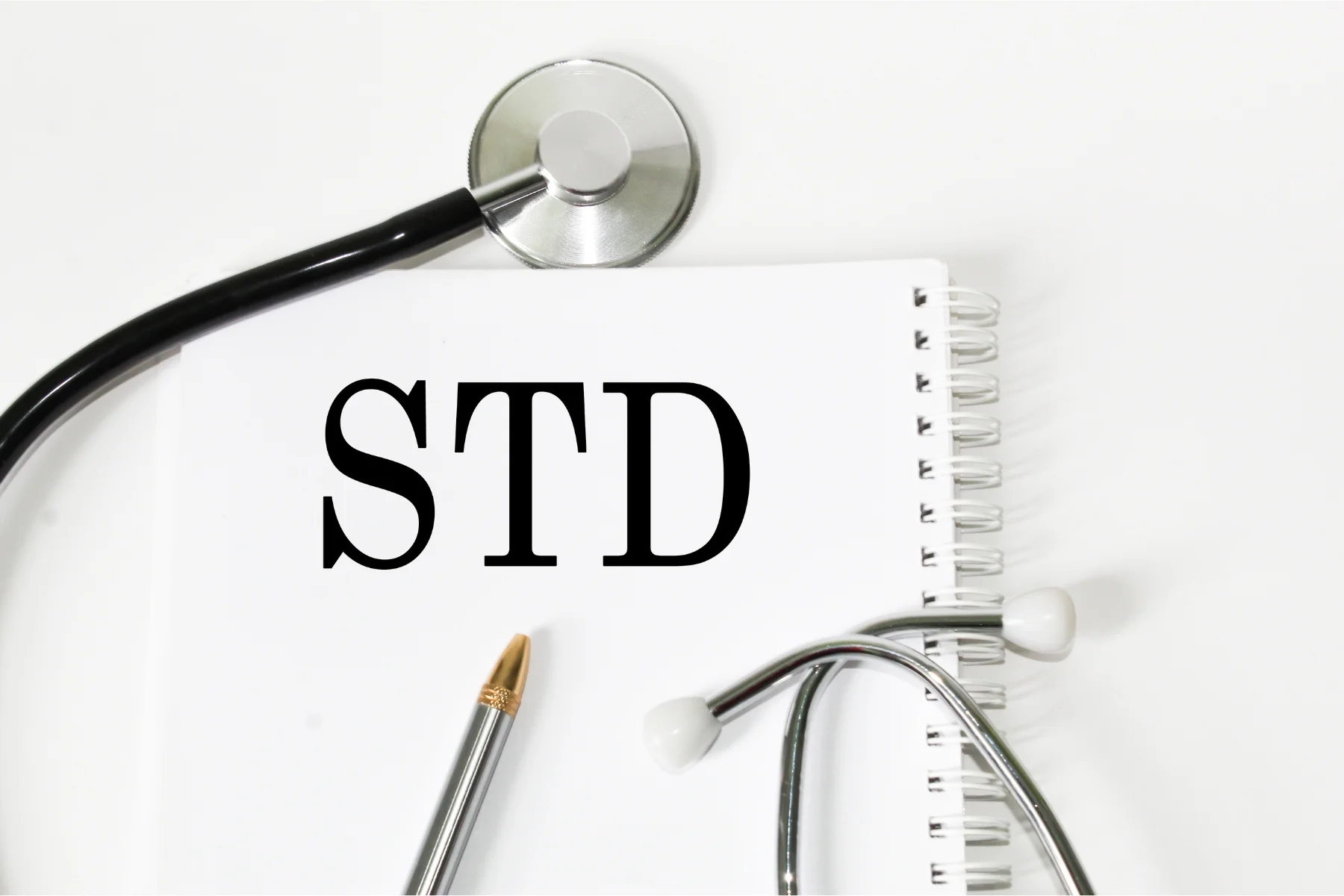Your kidneys play a vital role in your overall health, working tirelessly to filter waste, balance fluids, and regulate vital minerals. Despite their importance, many of us overlook how to maintain optimal kidney health until issues arise. Protecting these essential organs should be a priority, especially as we navigate the complexities of modern life. Fortunately, safeguarding your kidneys doesn’t require a complete lifestyle overhaul; small, manageable changes can have a significant impact. In this article, we’ll explore 10 essential tips for optimal kidney health that will empower you to take charge of your well-being. From dietary adjustments to hydration strategies, each tip is designed to enhance your kidney function and promote longevity. Don’t wait for symptoms to appear—start investing in your kidney health today to ensure that these vital organs continue to support your body for years to come!

Understanding Kidney Health: Importance and Functions
Your kidneys are two bean-shaped organs located on either side of your spine, just below your rib cage. Though small in size, each about the size of a fist, they play an outsized role in maintaining your overall health. These vital organs are responsible for filtering out waste products and excess fluids from the blood, which are then expelled from the body as urine. This filtration process is crucial for preventing the build-up of harmful toxins and maintaining a stable balance of salts and minerals, such as sodium, calcium, and potassium, all of which are essential for the proper functioning of your body.
In addition to their filtration duties, the kidneys regulate blood pressure by controlling the volume of blood in your body and releasing the enzyme renin, which helps manage blood vessel constriction. They also produce erythropoietin, a hormone that stimulates the production of red blood cells, ensuring that your tissues receive enough oxygen. Furthermore, they activate vitamin D, which is necessary for maintaining healthy bones by regulating calcium and phosphorus levels in the blood. Given these critical roles, it’s evident that your kidneys are integral to numerous bodily functions and overall wellness.
Despite their importance, kidneys are often taken for granted until they start malfunctioning. When kidney function declines, waste products and excess fluids can accumulate in your body, leading to health issues such as swelling, high blood pressure, and, in severe cases, kidney failure. Therefore, understanding the functions and importance of your kidneys is the first step in recognizing the need to protect and maintain their health. By prioritizing kidney health, you can prevent complications and ensure that these vital organs continue to support your body effectively.
Common Kidney Problems and Their Risk Factors
Kidney problems can range from mild to severe, with chronic kidney disease (CKD) being one of the most common conditions. CKD is a long-term condition characterized by a gradual loss of kidney function. It often goes undetected in its early stages because symptoms may not be apparent until significant damage has occurred. Risk factors for CKD include diabetes, high blood pressure, heart disease, and a family history of kidney disease. Individuals over the age of 60 are also at higher risk, as kidney function naturally declines with age.
Another common issue is acute kidney injury (AKI), which occurs suddenly and can be caused by a variety of factors including severe dehydration, infections, or the use of certain medications. AKI is often reversible if treated promptly, but it can lead to chronic kidney damage if not addressed in time. Kidney stones, which are hard deposits of minerals and salts that form inside the kidneys, are also prevalent. They can cause severe pain and urinary complications but are generally treatable with lifestyle changes and medical intervention.
Urinary tract infections (UTIs) are infections that can affect any part of the urinary system, including the kidneys. If left untreated, a UTI can lead to a kidney infection, which can cause permanent damage. Risk factors for UTIs include a shorter urethra in women, urinary catheters, and blockages in the urinary tract. Although UTIs and kidney stones are more common in females, both genders are susceptible to these issues. Understanding these common kidney problems and their risk factors is essential for taking preventive measures and seeking timely medical attention.
Tip 1: Stay Hydrated - The Role of Water in Kidney Function
Staying adequately hydrated is one of the simplest and most effective ways to maintain optimal kidney health. Water helps your kidneys remove waste products from your blood, which are then excreted in the urine. It also helps keep your blood vessels open, ensuring that essential nutrients can reach your kidneys and other organs. When you’re well-hydrated, your urine is clear or light yellow, indicating that your kidneys are functioning efficiently.
Dehydration, on the other hand, can lead to a buildup of waste and acids in the body, which can cause kidney stones and urinary tract infections. Chronic dehydration can also contribute to the development of CKD over time. The amount of water you need can vary based on factors such as your age, weight, activity level, and climate. However, a general guideline is to drink at least 8 glasses of water a day. If you’re physically active or live in a hot climate, you may need more to stay properly hydrated.
It’s also important to note that not all fluids are created equal. While water is the best choice for hydration, other beverages like herbal teas and diluted fruit juices can also contribute to your daily fluid intake. However, you should limit or avoid sugary drinks, sodas, and caffeinated beverages, as they can lead to dehydration and place additional strain on your kidneys. By making a conscious effort to stay hydrated, you can support your kidneys in their critical functions and prevent potential complications.
Tip 2: Maintain a Balanced Diet - Foods for Kidney Health
A balanced diet is crucial for maintaining kidney health and overall well-being. Consuming a variety of nutrient-rich foods ensures that your kidneys receive the vitamins and minerals they need to function effectively. Incorporating foods that are high in antioxidants, vitamins, and minerals can help reduce inflammation and oxidative stress, both of which can damage kidney tissues over time. Fresh fruits and vegetables, whole grains, lean proteins, and healthy fats should form the foundation of your diet.
Leafy greens such as spinach, kale, and Swiss chard are excellent sources of vitamins A and C, as well as minerals like magnesium and potassium, which support kidney function. Berries, particularly blueberries, strawberries, and cranberries, are rich in antioxidants that protect against cellular damage. Foods high in omega-3 fatty acids, such as salmon, mackerel, and flaxseeds, have anti-inflammatory properties that can help maintain kidney health. Additionally, incorporating nuts and seeds, legumes, and small portions of lean meats can provide essential nutrients without overloading your kidneys.
It’s also important to manage your intake of certain substances that can be harmful to your kidneys in large quantities. For example, excessive protein, particularly from animal sources, can increase the burden on your kidneys, especially if you have pre-existing kidney issues. Similarly, foods high in phosphorus and potassium, such as dairy products, bananas, and tomatoes, should be consumed in moderation if you have kidney disease. Consulting with a healthcare professional or a registered dietitian can help you create a personalized diet plan that supports your kidney health.
Tip 3: Monitor Your Blood Pressure and Blood Sugar Levels
High blood pressure and diabetes are two of the leading causes of kidney disease. Therefore, monitoring and managing your blood pressure and blood sugar levels are critical steps in protecting your kidney health. Hypertension, or high blood pressure, can damage the blood vessels in your kidneys, reducing their ability to function properly. Similarly, high blood sugar levels can cause damage to the kidney’s filtering units, leading to diabetic nephropathy, a common complication of diabetes.
Regularly checking your blood pressure and keeping it within a healthy range, typically less than 120/80 mmHg, can help prevent kidney damage. Lifestyle changes such as reducing sodium intake, exercising regularly, managing stress, and avoiding tobacco can significantly lower your blood pressure. If lifestyle modifications are not enough, your healthcare provider may prescribe medication to help control your blood pressure.
For individuals with diabetes, maintaining blood sugar levels within the target range is essential for preventing kidney damage. This can be achieved through a combination of a balanced diet, regular physical activity, and medication if needed. Monitoring your blood sugar levels regularly and following your healthcare provider’s recommendations can help you manage your condition effectively. By keeping your blood pressure and blood sugar levels in check, you can reduce the risk of kidney damage and support your overall health.
Tip 4: Exercise Regularly - The Benefits of Physical Activity
Regular physical activity is not only beneficial for your overall health but also plays a crucial role in maintaining optimal kidney function. Exercise helps improve cardiovascular health, which in turn supports healthy blood flow to the kidneys. It also aids in controlling weight, reducing blood pressure, and managing blood sugar levels, all of which are vital for preventing kidney disease. Engaging in regular exercise can help reduce stress and inflammation, both of which can negatively impact kidney health.
Incorporating a mix of aerobic exercises, strength training, and flexibility exercises into your routine can provide comprehensive health benefits. Aerobic exercises such as walking, jogging, swimming, and cycling can improve cardiovascular health and help maintain a healthy weight. Strength training exercises, such as lifting weights or using resistance bands, can build muscle mass and improve overall strength. Flexibility exercises, including yoga and stretching, can enhance mobility and reduce the risk of injury.
It’s important to choose activities that you enjoy and can sustain over the long term. Aim for at least 150 minutes of moderate-intensity aerobic exercise or 75 minutes of vigorous-intensity aerobic exercise per week, along with muscle-strengthening activities on two or more days per week. If you’re new to exercise or have pre-existing health conditions, consult with your healthcare provider before starting a new exercise program. By making regular physical activity a part of your lifestyle, you can support your kidney health and enhance your overall well-being.
Tip 5: Limit Sodium and Processed Foods in Your Diet
Excessive sodium intake is a major contributor to high blood pressure, a leading cause of kidney disease. Sodium is commonly found in table salt and many processed and packaged foods. Consuming too much sodium can lead to fluid retention, increased blood pressure, and added strain on your kidneys. Therefore, limiting your sodium intake is crucial for maintaining healthy blood pressure levels and protecting your kidneys.
To reduce sodium in your diet, start by minimizing your consumption of processed and packaged foods, which often contain high levels of hidden sodium. Instead, opt for fresh, whole foods such as fruits, vegetables, lean proteins, and whole grains. When preparing meals at home, use herbs, spices, and other natural seasonings to enhance flavor without adding salt. Reading food labels carefully can also help you identify and avoid high-sodium products.
In addition to reducing sodium, it’s important to limit the intake of other processed foods that can negatively impact kidney health. These foods often contain unhealthy fats, added sugars, and artificial additives that can contribute to inflammation and oxidative stress. By focusing on a diet rich in natural, nutrient-dense foods, you can support your kidney health and reduce the risk of developing chronic conditions that affect the kidneys.
Call Vesta Care Now to Begin the Evaluation Process!
Tip 6: Avoid Over-the-Counter Painkillers - Safe Medication Practices
While over-the-counter (OTC) painkillers can provide relief for occasional aches and pains, frequent or prolonged use can harm your kidneys. Nonsteroidal anti-inflammatory drugs (NSAIDs), such as ibuprofen and naproxen, can reduce blood flow to the kidneys and cause inflammation, potentially leading to kidney damage. Acetaminophen, another common pain reliever, can also be harmful to the kidneys if taken in high doses or over an extended period.
If you need to take painkillers, it’s important to use them as directed and only for the shortest duration necessary. Avoid combining different types of painkillers without consulting your healthcare provider, as this can increase the risk of kidney damage. If you have existing kidney issues or other health conditions, talk to your doctor before taking any medication, including OTC painkillers. They can recommend safer alternatives or adjust the dosage to minimize the risk of harm.
In addition to avoiding the overuse of painkillers, it’s important to be cautious with other medications and supplements that can affect kidney function. Some prescription medications, herbal supplements, and vitamins can interact with your kidneys and cause adverse effects. Always inform your healthcare provider about all the medications and supplements you’re taking, and follow their recommendations to ensure safe and effective use. By practicing safe medication habits, you can protect your kidneys and maintain their health.
Explore Your Options with Vesta Care for Affordable Healthcare Solutions!
Tip 7: Regular Health Check-Ups - The Importance of Early Detection
Regular health check-ups are essential for monitoring kidney function and detecting potential issues early. Many kidney problems, including CKD, can develop slowly and without noticeable symptoms in the early stages. Routine blood and urine tests can help identify signs of kidney dysfunction before they progress to more serious conditions. Early detection allows for timely intervention and treatment, which can prevent further damage and improve outcomes.
During your regular check-ups, your healthcare provider will assess your kidney function using tests such as the glomerular filtration rate (GFR) and urine albumin-to-creatinine ratio (UACR). GFR measures how well your kidneys are filtering waste from your blood, while UACR detects the presence of protein in your urine, which can be an early sign of kidney damage. Based on the results, your doctor can recommend appropriate lifestyle changes, medications, or further tests to address any concerns.
In addition to kidney function tests, regular check-ups can help monitor other risk factors for kidney disease, such as blood pressure, blood sugar levels, and cholesterol. By keeping track of these parameters and making necessary adjustments to your lifestyle and treatment plan, you can reduce the risk of developing kidney problems. Prioritizing regular health check-ups and following your healthcare provider’s advice can empower you to take proactive steps toward maintaining optimal kidney health.
Contact Vesta Care today to begin the insurance approval process and secure the healthcare services you deserve!
Conclusion: Taking Charge of Your Kidney Health for a Better Future

Your kidneys are vital organs that play a crucial role in maintaining your overall health and well-being. By understanding their importance and the common risk factors for kidney problems, you can take proactive steps to protect and preserve your kidney function. Implementing the essential tips outlined in this article, such as staying hydrated, maintaining a balanced diet, monitoring blood pressure and blood sugar levels, exercising regularly, limiting sodium and processed foods, avoiding over-the-counter painkillers, and prioritizing regular health check-ups, can significantly enhance your kidney health and prevent potential complications.
Investing in your kidney health today can lead to a better, healthier future. Small, manageable changes in your daily routine can have a substantial impact on your kidney function and overall quality of life. By taking charge of your kidney health, you can ensure that these vital organs continue to support your body effectively for years to come. Don’t wait for symptoms to appear—start making positive changes now and enjoy the benefits of optimal kidney health.
Remember, your kidneys are essential to your well-being, and maintaining their health should be a priority. By following these tips and staying informed about your kidney health, you can take control of your well-being and enjoy a healthier, more vibrant life. Make the commitment to protect your kidneys today and experience the long-term benefits of optimal kidney function and overall health.



